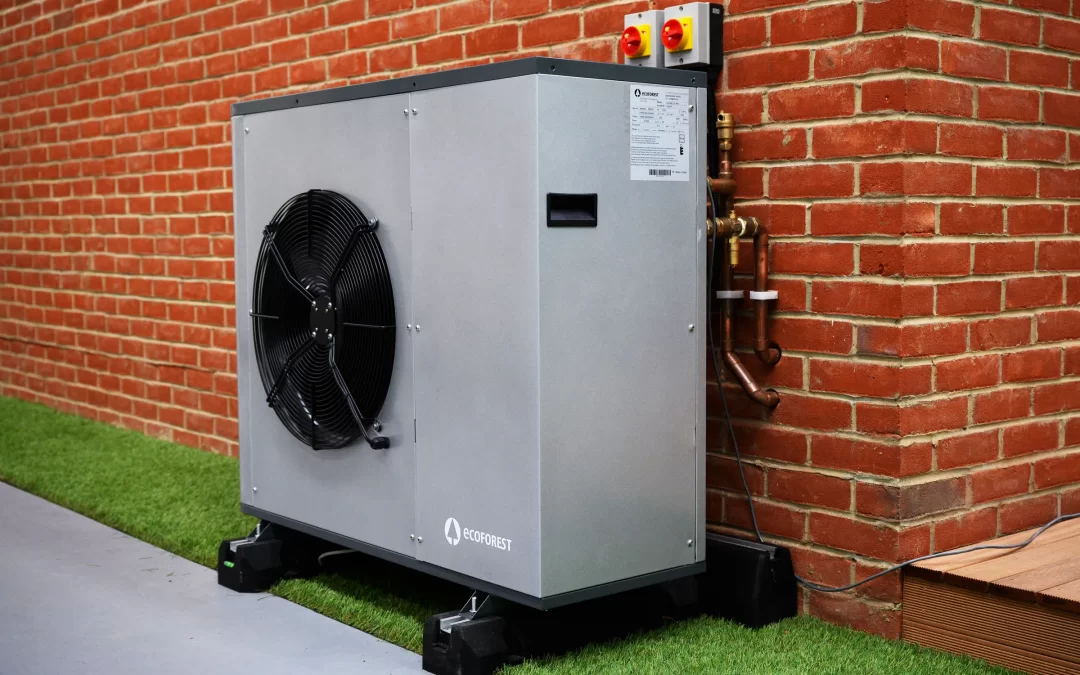While furnaces and heat pumps both warm up indoor air, they differ in heating capabilities, energy efficiency, maintenance requirements, use of space, and cost. That’s what makes the age-old heat pump vs furnace debate so engaging. The main difference is that a heat pump can both heat and cool your home while a furnace only heats. However, heat pumps can struggle to provide sufficient heating when temperatures outside get too low. Furnaces on the other hand, provide consistent heat traditionally through gas or electric power.
Difference between a heat pump and a furnace
The area of the country in which you live is perhaps the biggest factor in your heat pump vs furnace debate. Traditionally, heat pumps are best in areas where winters are mild, like in southern and coastal states. Furnaces offer greater ability to heat your home during harsher, colder winter conditions and are therefore better suited in northern locations. Most furnaces in the U.S. use natural gas for combustion, but propane, oil and electric furnaces are used as well. By selecting a heating system suited to your climate, you can enjoy better comfort and probably lower operating costs as well.
GAS FURNACE
When making your gas furnace vs. heat pump comparison, you’ll want to take a number of factors into consideration, including how they work, efficiency, maintenance requirements, and size/space requirements. To generate heat, furnaces burn oil or gas, while heat pumps run on electricity, drawing heat from outside air, even cold air, and transferring it indoors. Heat pumps produce less heat than furnaces and work best in warmer climates (zones 1-3 on the U.S. Department of Energy climate zone map).
Heat pumps are more versatile in creating indoor comfort—they provide heat in winter and can also act as air conditioners in summer. This means people in warmer climates can heat and cool their home using just a heat pump system. On the other hand, furnaces only provide heat, so a separate air conditioning unit is required to cool your home in warmer months. While both products have different purposes, some climates allow for a furnace to be installed with a heat pump, known as a dual fuel system for heating and cooling. A dual fuel heating system can offer greater savings. One example would be to pair a gas furnace with an air-source heat pump. With two heat sources, the system will gauge the outdoor temperature to determine the most efficient option to heat your home.
ENERGY EFFICIENCY
Comparing energy efficiency between gas furnaces and heat pump systems is complicated. High efficiency heat pumps in warmer climates typically use less source energy on average compared to gas furnaces. In colder climates, 95% efficient gas furnaces fare better than ENERGY STAR® heat pumps. From a strictly scientific basis, heat pumps are technically more energy efficient in that they can transfer more energy than they use. By contrast, a high efficiency natural gas furnace like the Carrier Infinity 98 with Greenspeed® Intelligence can provide up to 98.5% efficiency (AFUE). Here’s where it gets complicated. And, due to the relatively lower cost of natural gas versus electricity, lifetime operating costs should be considered as well initial outlay.
MAINTENANCE
Both heat pumps and furnaces will last longer and operate more efficiently with preventative maintenance. Both systems include air filters that most homeowners can easily replace. Typical residential heat pump systems include an outdoor unit and an indoor unit that are recommended to be cleaned and inspected annually. A gas furnace does not require an outdoor unit but is often paired with a central air conditioner unit.
SPACE
Furnaces typically require at least 30 inches of clearance on all sides and are installed indoors. A heat pump requires only 24 inches of clearance and is installed outdoors. However, a traditional air-source heat pump system also requires an indoor air handler unit called a fan coil. Regardless of which option is best for you, East Coast Mechanical offers a complete line of furnaces, including gas furnaces that can be converted to propane furnaces and heat pumps designed to provide options for virtually every home.
OIL FURNACE VS HEAT PUMP
With oil furnaces, you’ll need to take into consideration the cost of installation because a heat pump requires both an outdoor unit and an air handler. You’ll also want to consider the cost of heating oil versus the cost of electricity. In milder climates, high efficiency heat pumps can be a very good and effective option. In colder climates, and oil furnace may be able to provide reliable comfort even when temperatures drop well below freezing. With an oil furnace, you’ll need to be sure you don’t run out of oil, while a heat pump will continue to operate as long as you are not experiencing a power outage.
ELECTRIC FURNACE VS HEAT PUMP
Making the electric furnace vs heat pump comparison, the biggest similarity between the two is they both use electricity to heat your home. Additionally, both are more prevalent in southern states where winters are milder and heating needs take a back seat to cooling.
Electric furnaces use electric coils to generate heat, while heat pumps use electricity to move heating energy from outside to inside. Heat pump systems, especially in colder climates, often will often have a backup heat source for more extreme weather. Electric furnaces are considered to be 100% energy efficient but bear in mind they can actually cost almost 2.5 times more than a typical heat pump to output the same amount of heat.
Although, a heat pump system provides cooling as well as heating. An electric furnace will need help during the summer months with central air conditioning or other sources of cooling comfort. Keep in mind, heat pumps are targeted towards air-source, split-system, forced-air heat pumps, the most common type of heat pump used in the U.S.
If you are interested in geothermal or ground-source heat pumps, you’ll find many of the same benefits. They can achieve much higher energy efficiencies than air-source models, but also typically come with a higher initial cost for a first-time installation. Ductless split-system heat pumps are yet another option but are more commonly used in commercial buildings in the U.S. For home additions or adding comfort to older homes with no ductwork then a ductless split system heat pump would suit.
Difference between a heat pump and a furnace
Can a heat pump replace a furnace and air conditioner? The simple answer is “Yes,” a heat pump can take the place of a furnace and an air conditioner. A furnace cannot.
Contact us
If you have an upcoming heating project, join hands with a licensed and insured contractor at East Coast Mechanical. Email: ecmcecmc@aol.com Address: 5133 W Hurley Pond Rd Suite A, Wall Township, NJ 07727 Hours: Monday to Friday 8 AM to 5 PM and Closed Saturday and Sunday.
Phone: 800-300-ECMC or 732-751-8877

